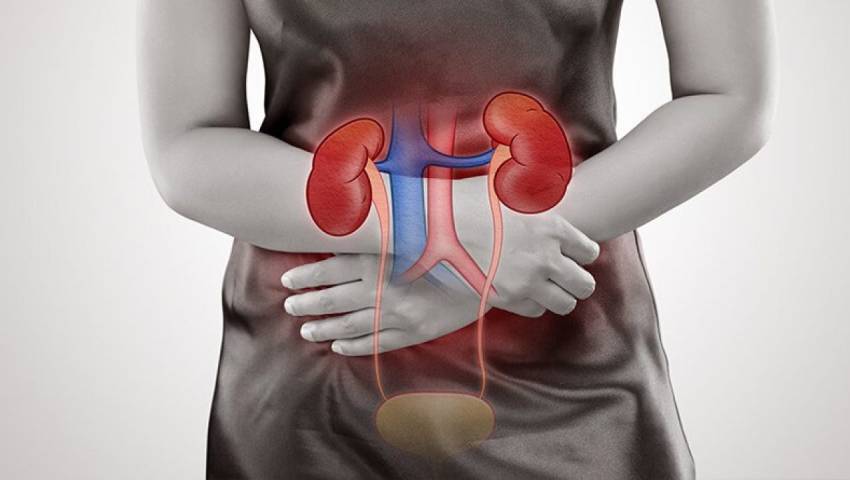
- 30/04/2024
- YASHAAYU99 Ayurveda
- Blog
Holistic Ayurvedic Management of Kidney Failure: A Comprehensive Guide to Renewed Kidney Health
Kidney failure, medically termed renal failure, represents a critical condition where the kidneys lose their ability to filter waste products and excess fluids from the bloodstream effectively. This impairment can lead to a dangerous accumulation of toxins, electrolyte imbalances, and fluid retention, all posing significant health risks. While conventional medicine offers treatments like dialysis and kidney transplantation, Ayurveda, the ancient Indian system of medicine, provides a holistic approach to managing kidney failure. In this comprehensive guide, we delve deeply into Ayurvedic principles and explore detailed strategies for supporting kidney health and managing kidney failure effectively.
Understanding Ayurveda’s Perspective on Kidney Failure: Ayurveda, with its holistic approach, perceives kidney failure as an outcome of dosha imbalances – Vata, Pitta, and Kapha – coupled with the accumulation of toxins (ama) in the body. According to Ayurvedic principles, the kidneys are predominantly governed by the Vata dosha, and any perturbations in Vata can significantly impact kidney function. Pitta dosha imbalance can lead to inflammatory processes and subsequent damage to the kidneys, while Kapha imbalance may manifest as fluid retention and congestion in the renal system.
Detailed Principles of Ayurvedic Management for Kidney Failure:
- Dietary Modifications: Ayurveda places immense importance on dietary adjustments tailored to an individual’s dosha constitution. In the context of kidney failure, dietary modifications aim to alleviate the workload on the kidneys while ensuring optimal nutrient intake. Specific dietary recommendations may include:
- Protein Restriction: Limiting protein intake to ease the burden on the kidneys, with a focus on high-quality, easily digestible protein sources.
- Electrolyte Management: Avoiding foods high in potassium, phosphorus, and sodium, as their accumulation can exacerbate kidney dysfunction.
- Incorporating Whole Foods: Emphasizing the consumption of fresh fruits, vegetables, whole grains, and legumes to provide essential nutrients and support overall health.
- Hydration: Ensuring an adequate intake of water to maintain hydration levels and support kidney function.
- Herbal Remedies: Ayurvedic herbs are renowned for their rejuvenating and detoxifying properties, making them invaluable in supporting kidney health. Some key herbs utilized in the management of kidney failure include:
- Punarnava (Boerhavia diffusa): Revered for its diuretic properties, Punarnava aids in reducing fluid retention and promoting kidney function.
- Gokshura (Tribulus terrestris): Supports urinary tract health and possesses anti-inflammatory properties beneficial for kidney health.
- Varuna (Crataeva nurvala): Acts as a natural diuretic, facilitating the elimination of toxins from the kidneys.
- Chandraprabha Vati: A classical Ayurvedic formulation known to support kidney function and restore dosha balance.
- Panchakarma Therapy: Panchakarma, an integral aspect of Ayurvedic medicine, entails various detoxification procedures aimed at eliminating toxins from the body. In the context of kidney failure, specific Panchakarma therapies such as Virechana (therapeutic purgation) and Basti (enema therapy) may be recommended to cleanse the kidneys and restore their optimal functioning.
- Lifestyle Modifications: Adopting a healthy lifestyle is paramount for managing kidney failure effectively. Key lifestyle modifications may include:
- Regular Exercise: Engaging in regular physical activity to improve circulation, support overall health, and enhance kidney function.
- Stress Management: Employing stress-reduction techniques such as yoga, meditation, and deep breathing exercises to mitigate the impact of stress on kidney health.
- Adequate Rest: Prioritizing adequate rest and quality sleep to facilitate healing and rejuvenation of the body.
- Consultation with an Ayurvedic Practitioner:
Individuals grappling with kidney failure should seek guidance from a qualified Ayurvedic practitioner Like Dr Mangesh P Desai. At YASHAAYU99 Ayurveda Wellbeing Center personalized treatment plan will be devised based on the individual’s dosha constitution, health status, and specific requirements by Dr Mangesh. He will oversee dietary recommendations, herbal therapies, Panchakarma interventions, and lifestyle modifications to ensure a comprehensive approach to kidney health restoration.
Conclusion:
Ayurveda offers a holistic paradigm for managing kidney failure, addressing the underlying imbalances and promoting overall well-being. Through meticulous dietary modifications, targeted herbal remedies, Panchakarma therapies, lifestyle adjustments, and expert guidance from Ayurvedic practitioners, individuals can embark on a transformative journey towards renewed kidney health and enhanced quality of life. By integrating Ayurvedic principles into their management regimen, individuals with kidney failure can cultivate resilience, vitality, and long-term wellness.
